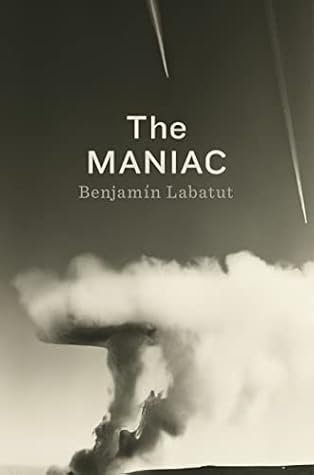More on this book
Community
Kindle Notes & Highlights
On the morning of the twenty-fifth of September 1933, the Austrian physicist Paul Ehrenfest walked into Professor Jan Waterink’s Pedagogical Institute for Afflicted Children in Amsterdam, shot his fifteen-year-old son, Vassily, in the head, then turned the gun on himself.
Boltzmann was one of the strongest advocates of the atomic hypothesis, a veritable trailblazer who first discovered the role that probability plays in the behavior and properties of atoms.
in his personal life he could not escape the slow and constant advance of his mental disorder, which seemed, like the entropy of the universe he had so wonderfully captured in his equation, to be constantly and irreversibly increasing, leading to inevitable randomness and decay.
convinced Ehrenfest that “the remarkably open and carefully planned extermination of the Jewish ‘plague’ from German art, science, jurisprudence, and medicine would quickly be 90 percent effective.” During the last year of his life he used his contacts and influence to help Jewish scientists find work outside of Germany, even though he had lost all faith in a possible future for himself.
I have often wondered about the consciousness of animals, how it must be more shadowy than ours, more dreamlike and fleeting, small thoughts like half-burned candles, their outlines never fully formed. And perhaps that is also the case for many of us who must strain to think with clarity.
Ay, yes, the great von Neumann. What a mensch! God of science and technology! King of consultants! Father of computers! Makes me laugh. If they only knew him like I did. That man could not tie his shoes. Useless. Worse than a baby. I swear that if I had left him home by himself for a couple of days he would have starved in front of the stove.
In a small village in Poland, a terrifying rumor was spreading. A Christian girl had been found murdered. Fearing swift retaliation, the Jewish community gathered in the shul to plan whatever defensive actions were possible under the circumstances. Just as the emergency meeting was being called to order, in ran the president of the synagogue, out of breath and all excited. Brothers, he cried out. Brothers, I have the most wonderful news! The murdered girl—the murdered girl is Jewish!
The few times I spoke to him, I could sense how logic and logical thinking were inextricably bound to his mounting derangement, because, in some sense, paranoia is logic run amok.
I remembered the line from the Hindu scripture, the Bhagavad Gita: Vishnu is trying to persuade the prince that he should do his duty, and to impress him takes on his multiarmed form and says, “Now I am become Death, the Destroyer of Worlds.” I suppose we all thought that, one way or another. J. Robert Oppenheimer
Johnny loved America almost as much as I despised it. That country did something to him. All that maddening, unthinking optimism, all that cheerful naïveté under which they hid their cruelty, it brought out the worst in him.
Not a breath of culture to be found in that entire country. Just happy wives raving about their appliances with patriotic, all-American fifties optimism and dullard husbands riding their new lawnmowers with bottles in their hands.
Years later Teller became a pariah among his physicist friends after stabbing Oppenheimer in the back,
“We have no guiding star,” he told me, “nothing to look up or aspire to, so we are devolving, falling back into animality, losing the very thing that has let us advance so far beyond what was originally intended for us.”
Jancsi thought that if our species was to survive the twentieth century, we needed to fill the void left by the departure of the gods, and the one and only candidate that could achieve this strange, esoteric transformation was technology; our ever-expanding technical knowledge was the only thing that separated us from our forefathers, since in morals, philosophy, and general thought, we were no better (indeed, we were much, much worse) than the Greeks, the Vedic people, or the small nomadic tribes that still clung to nature as the sole granter of grace and the true measure of existence. We had
...more


